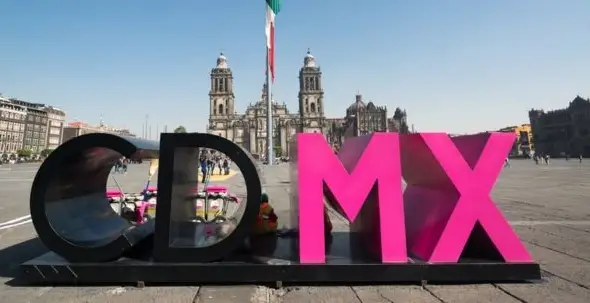With good reason, the capital’s residents who own real estate are concerned about the new ordinance that Martí Batres Guadarrama has just promulgated a few days before he leaves office as head of the Mexico City Government.
While the new president and her closest team are building bridges with the private sector and national and foreign investors so that they consider Mexico as a destination for their companies and capital, the government of López Obrador and his collaborators are focused on scaring them with local constitutional modifications and with the eventual approval of the judicial reform that will leave citizens or private entities without any defense in the event of a disagreement or difference with the authority.
This Monday, September 2, the reform to article 3 of the Political Constitution of Mexico City was published. The only change consists of eliminating respect for private property as a guiding principle in the Constitution of CDMX.
In the previous constitutional text of article 3, it was read that Mexico City assumes as principles: respect for private property, and with the modification established in the new constitutional text it says:
Mexico City assumes as principles:
a) “respect for property in the same terms of article 27 of the Political Constitution of the United Mexican States.”
This change may have the following consequences:
- Greater state control: the change aligns the regulation of property in Mexico City with the principles of article 27 of the federal Constitution, which allows greater state control over property in terms of public and social utility. This could facilitate expropriation or state intervention in private property for projects of public interest.
- Reduction of protections for private property: by eliminating the explicit focus on “private property,” it could be interpreted that the protection of this type of property is diluted, opening the door to legal interpretations that prioritize other types of property (such as social or communal property) or that allow greater flexibility in state intervention.
- Possible changes in urban policies: this reform could justify more aggressive urban policies regarding the redistribution of land, the reconfiguration of urban spaces or the promotion of social housing, by relying on the public and social utility mentioned in article 27.
- Impact on investment: private investors could perceive greater risk in Mexico City due to the decrease in explicit guarantees on private property, which could affect real estate investment and other related sectors.
- Legal and constitutional challenges: This change could generate legal controversies, especially if it is perceived that the rights of private owners are violated, which could lead to litigation or even attempts to reverse the reform in the future.
These considerations respond to a cursory assessment of the new constitutional order for Mexico City. The change in the local Constitution will have to be analyzed in greater depth, but at the outset, we are faced with the real threat that the authority, for reasons of public interest, may expropriate any property, or the set of properties, under the pretext of seeking control in terms of public and social utility.
It could be the case that for public benefit they decide to expropriate areas of the capital’s most valuable corridors such as Condesa, Polanco, Lomas, Santa Fe or Pedregal, to allocate them to social interest housing.
Faced with this arbitrary action by the authority, the affected party would have to go to court to avoid expropriation, but with AMLO’s judicial reform, the judge, elected by popular vote, would resolve the dispute in favor of the authority.
The individual will be completely defenseless against authoritarian acts and the partiality of the judges in favor of the party in power.
With a legislative majority in the capital that exceeds the qualified majority required in the capital’s Congress, it will be possible to promote, for example, constitutional ordinances that exterminate private property and encourage the invasion of land for the sake of social good and public benefit.
Martí Batres himself warned, so that there would be no room for doubt, that “the bases for a fair, harmonious development with a social emphasis, which recognizes the supremacy of the public over any particular interest, are established.”
In addition, the future director of ISSSTE reported that with this reform to the Constitution of the CMDX, the current Judicial Branch is prevented from making interpretations of local norms in favor of “the most powerful economic groups” and a part of the legal and ideological framework of neoliberalism is reversed.
Source: elfinanciero




